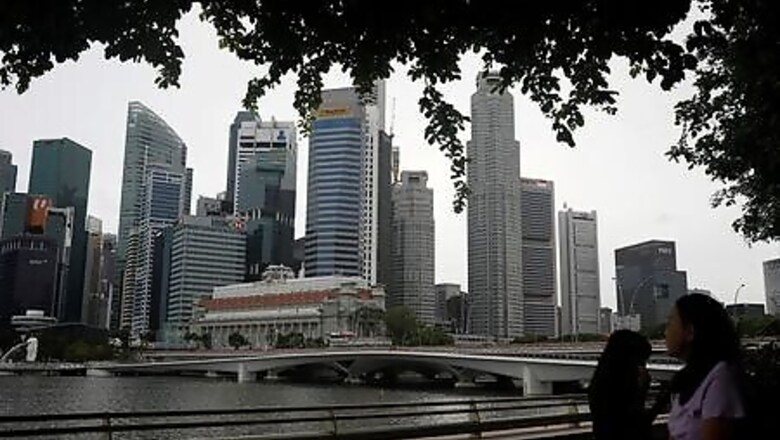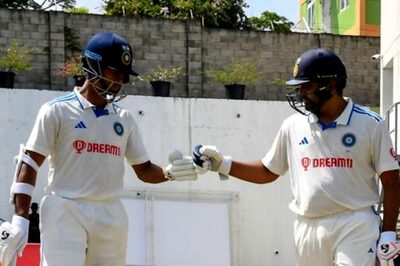
views
SINGAPORE Singapore’s recession was deeper than first estimated in the second quarter as the coronavirus pandemic dealt a major blow to Asia’s trade-reliant economies.
The city-state has been hit hard by COVID-19 with the country under a lockdown for most of the second quarter to curb the spread of the virus.
“There continues to be significant uncertainty over how the COVID-19 situation will evolve in the coming quarters, and correspondingly, the trajectory of the economic recovery in both the global and domestic economies,” Gabriel Lim, permanent secretary for trade and industry, told a briefing.
“The outlook for the Singapore economy has weakened slightly since May.”
Gross domestic product (GDP) fell a record 13.2% year-on-year in the second quarter, revised government data showed on Tuesday, versus the 12.6% drop seen in advance estimates.
The economy fell 42.9% from the previous three months on an annualised and seasonally adjusted basis, also a record and larger than the 41.2% contraction in the government’s initial estimates.
The data matched analyst expectations.
The government said it now expects full-year GDP to contract between 5% and 7% versus its previous forecast for a 4% to 7% decline. The transport and tourism hub is still facing the biggest downturn in its history.
“The downgrade in second quarter and full-year GDP growth points to a slower and sluggish economic recovery,” said Chua Hak Bin, an economist at Maybank.
He said strict border controls, social distancing rules and foreign worker shortages will weigh on the pace of the recovery, even though lockdown measures have been relaxed.
The GDP slump marked the second consecutive quarter of contraction for the global finance hub – having declined 0.3% year-on-year in the first quarter and 3.1% quarter-on-quarter – meeting the definition for a technical recession.
Singapore’s data comes as other large Asian economies such as Japan are also set to report a record contraction in the second quarter.
Meanwhile, South Korea’s exports extended double digit declines in the first week of August.
Economies were starting re-tighten measures after the fresh emergence of outbreaks, said Selena Ling, OCBC Bank’s head of treasury research and strategy.
“That is going to dampen, if not potentially kill off, any of the recovery hopes that people were looking forward to,” she said.
Singapore’s central bank had eased its monetary policy in March, while the government has pumped in nearly S$100 billion ($72 billion) worth of stimulus to blunt the impact of the pandemic.
Disclaimer: This post has been auto-published from an agency feed without any modifications to the text and has not been reviewed by an editor




















Comments
0 comment